实验三——张翼飞
实验任务一:
// 生成N个0~99之间的随机整数,并打印输出 #include <stdio.h> #include <stdlib.h> #include <time.h> #define N 5 int main() { int x, n; srand(time(0)); // 以当前系统时间作为随机种子 for(n=1; n<=N; n++) { x = rand() % 100; // 生成一个0~99之间的随机整数 printf("%3d", x); } printf("\n"); return 0; }
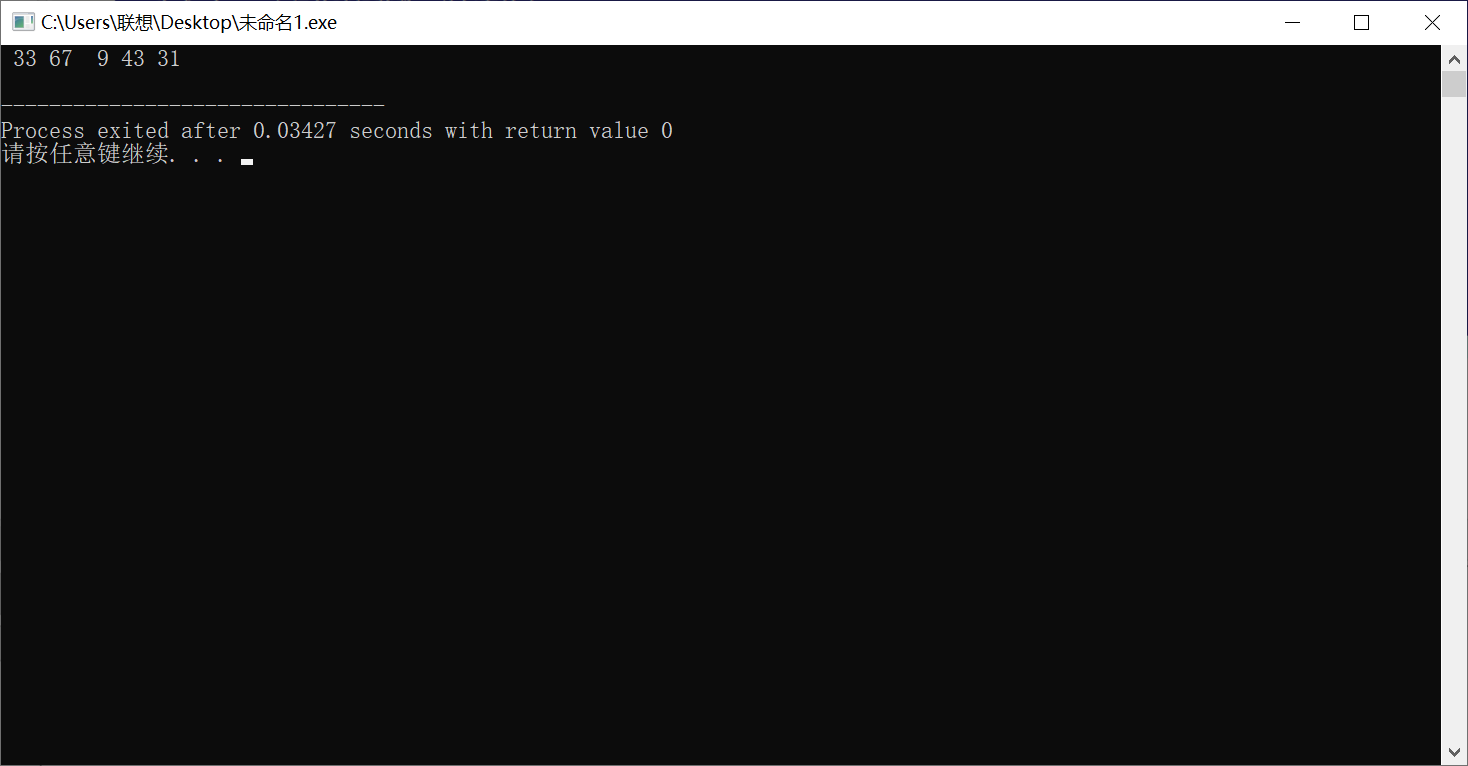
思考题
// 生成N个0~31之间的随机整数,并打印输出 #include <stdio.h> #include <stdlib.h> #include <time.h> #define N 5 int main() { int x, n; srand(time(0)); // 以当前系统时间作为随机种子 for(n=1; n<=N; n++) { x = rand() % 31+1; // 生成一个1~31之间的随机整数 printf("%3d", x); } printf("\n"); return 0; }
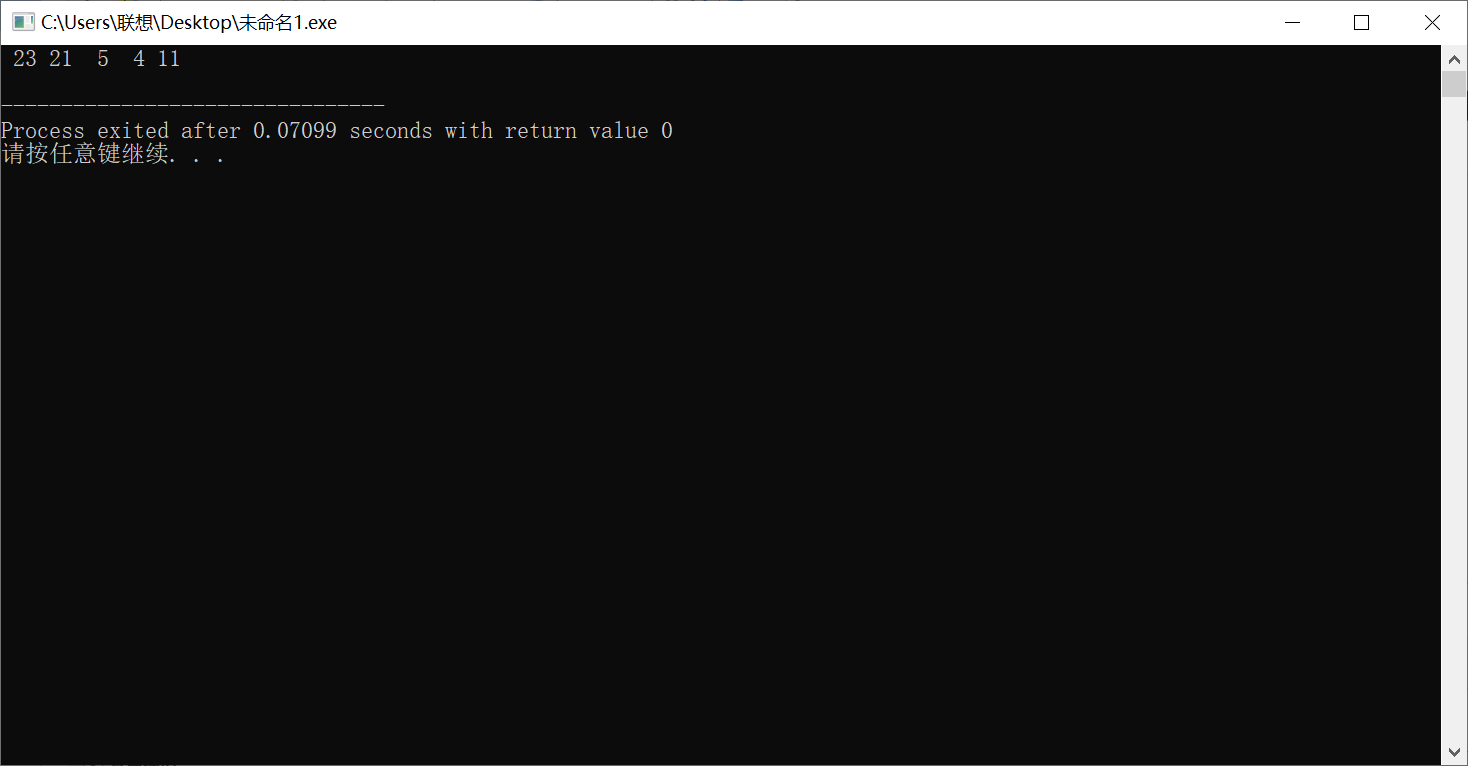
实验任务二:
#include<stdio.h> #include<stdlib.h> #include<time.h> #define N 3 int main(){ int x,n,a; srand(time(0)); x = rand()%31+1; printf("猜猜2021年5月哪一天会是你的lucky day\n开始喽,你有三次机会,猜吧(1~31):"); for(n=1;n<=N;n++){ scanf("%d",&a); if(a>x) { if(n<3) printf("你猜的日期晚了,lucky day悄悄溜到前面了\n再猜(1~31):"); else printf("你猜的日期晚了,lucky day已经过了\n"); } else if(a<x) { if(n<3) printf("你猜的日期早了,lucky day悄悄溜到后面了\n再猜(1~31):"); else printf("你猜的日期早了,lucky day还没到呢\n"); } else {printf("恭喜你猜对了!\n");break;} } printf("次数已经用完了很遗憾你没有猜对。偷偷告诉你:5月,你的lucky day是%d号\n",x); return 0; }

实验任务三:
#include <math.h> int main() { long a,b,n,x; printf("Enter a number:\n"); scanf("%d",&a);//输入一个长整型数字 b=a,n=1; while(b/=10)n*=10;//判断s有多少位 while(a){ if((x=a/n)&1)//是奇数 (b*=10)+=x;//将b乘以10后加到这位奇数上构成新的数字 a%=n,n/=10; } printf("The new number is %d\n",b); return 0; }
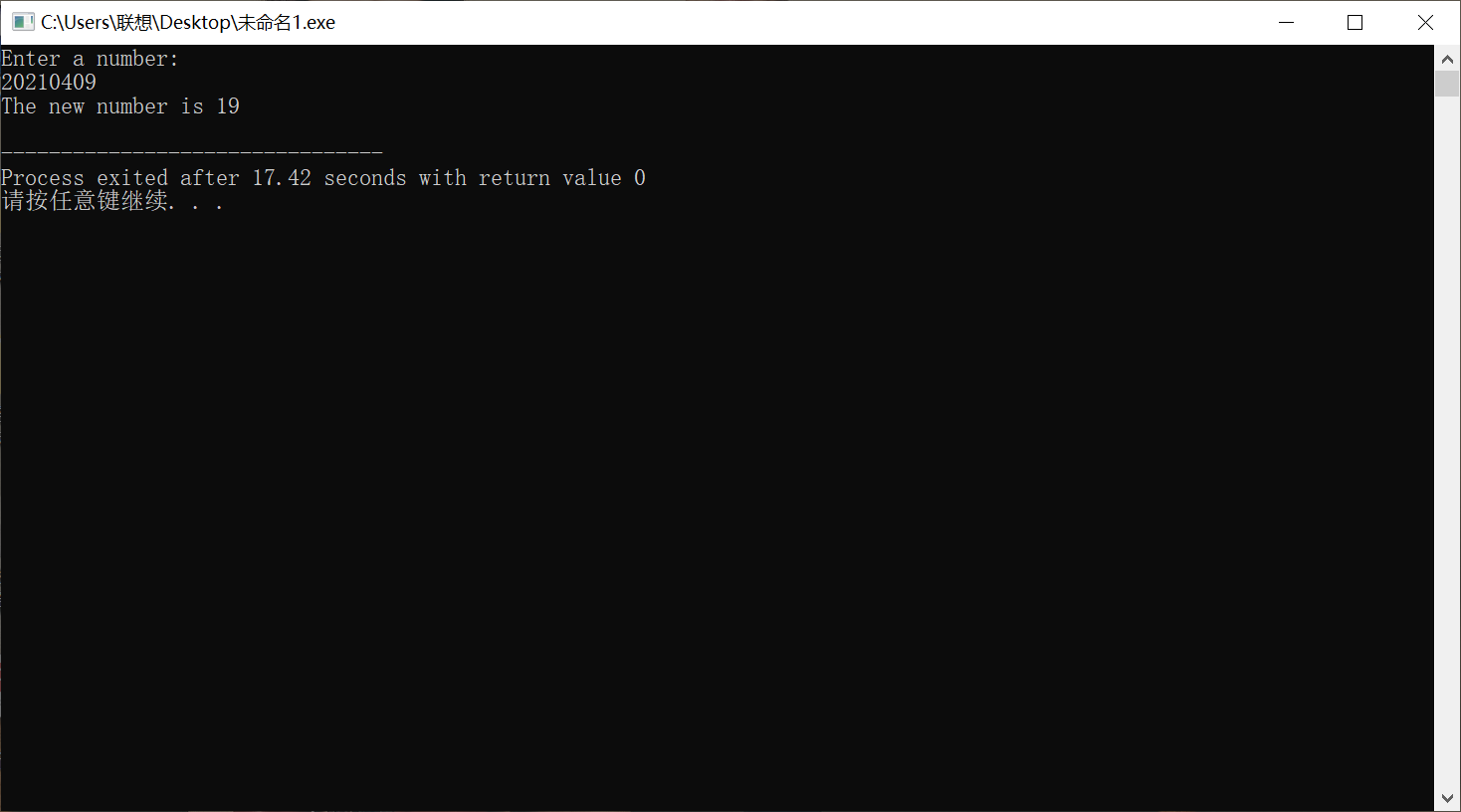
实验任务四:
// 一元二次方程求解(函数实现方式) // 重复执行, 直到按下Ctrl+Z结束 #include <math.h> #include <stdio.h> // 函数声明 void solve(double a, double b, double c); // 主函数 int main() { double a, b, c; printf("Enter a, b, c: "); while(scanf("%lf%lf%lf", &a, &b, &c) != EOF) { solve(a, b, c); // 函数调用 printf("Enter a, b, c: "); } return 0; } // 函数定义 // 功能:求解一元二次方程,打印输出结果 // 形式参数:a,b,c为一元二次方程系数 void solve(double a, double b, double c) { double x1, x2; double delta, real, imag; if(a == 0) printf("not quadratic equation.\n"); else { delta = b*b - 4*a*c; if(delta >= 0) { x1 = (-b + sqrt(delta)) / (2*a); x2 = (-b - sqrt(delta)) / (2*a); printf("x1 = %.2f, x2 = %.2f\n", x1, x2); } else { real = -b/(2*a); imag = sqrt(-delta) / (2*a); printf("x1 = %.2f + %.2fi, x2 = %.2f - %.2fi\n", real, imag, real, imag); } } }
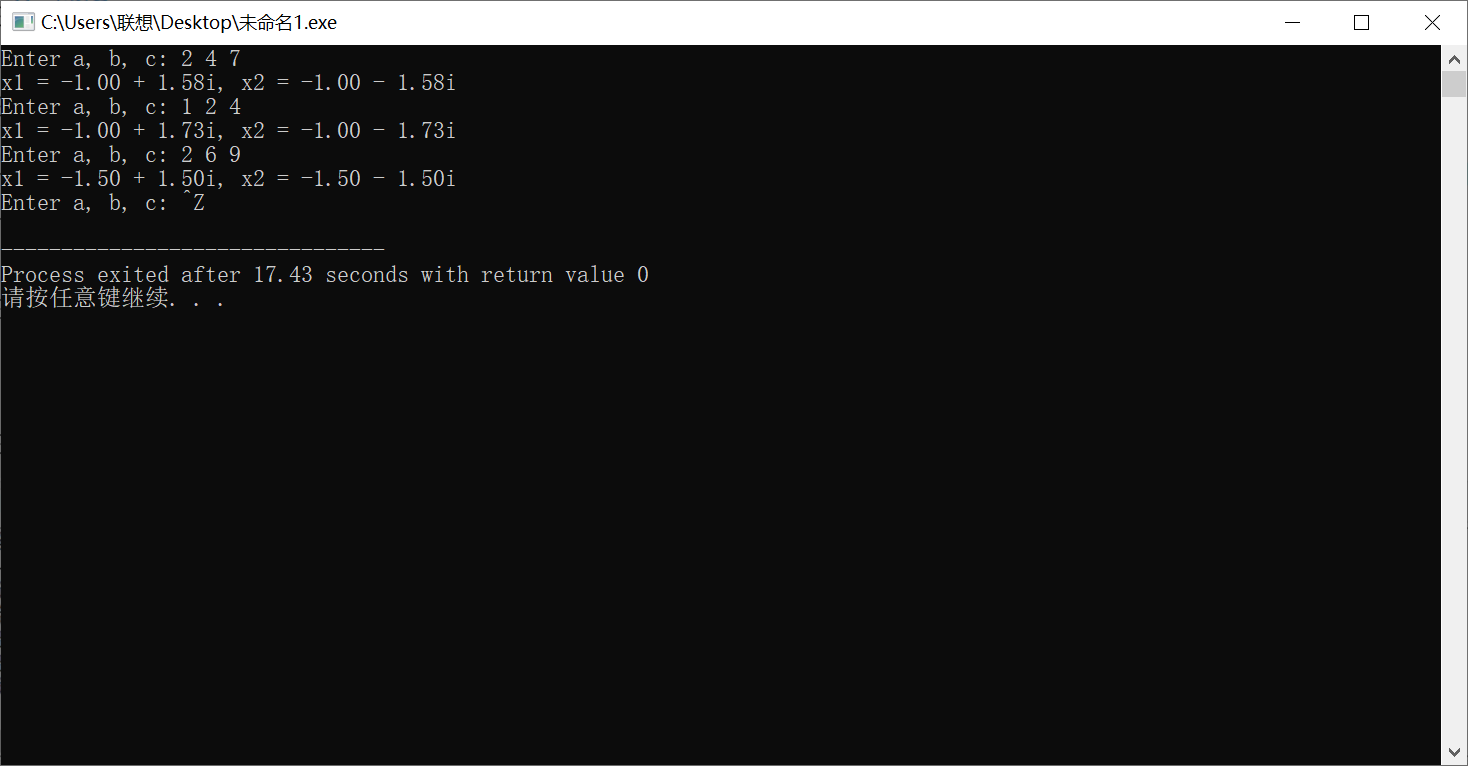
实验任务五:
#include <stdio.h> double fun(int n); // 函数声明 int main() { int n; double s; printf("Enter n(1~10): "); while(scanf("%d", &n) != EOF) { s = fun(n); // 函数调用 printf("n = %d, s= %f\n\n", n, s); printf("Enter n(1~10): "); } return 0; } // 函数定义 double fun(int n){ double s=1,x=1; int i; if(n==1) return 1; else{ for(i=2;i<=n;i++){ x=-x*1/i; s=s+x; } return s; } }
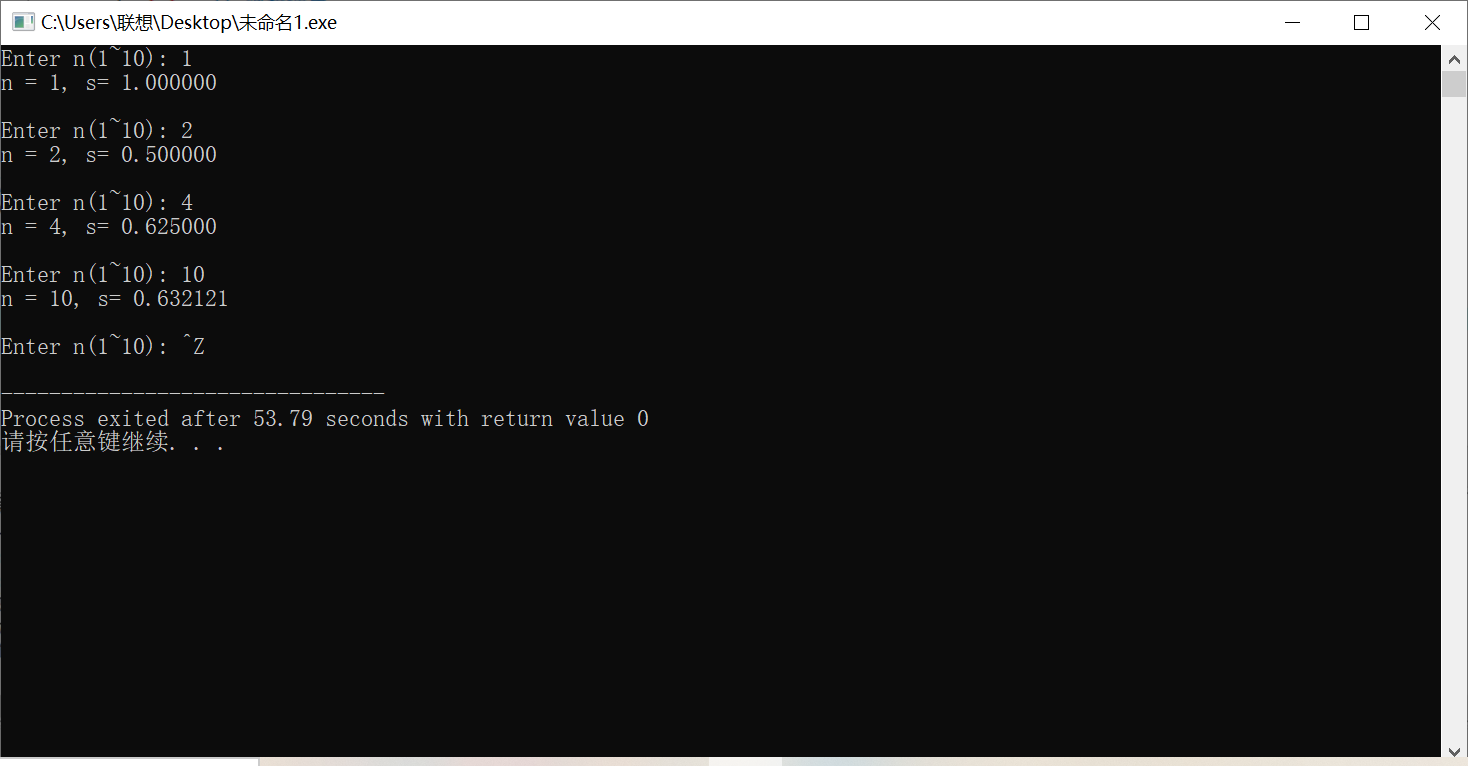
实验任务六:
#include<stdio.h> #include<math.h> int isPrime(int n) ; int main(){ int i,s,a=0; for(i=101;i<=200;i++){ s=isPrime(i); if(s==i){ printf("%5d",s); a=a+1; } if(s!=0&&a%5==0) printf("\n"); } return 0; } int isPrime(int n){ int i,m; m=sqrt(n); for(i=2;i<=m;i++) if(n%i==0)break; if(i>m&&n>1) return n; else return 0; }
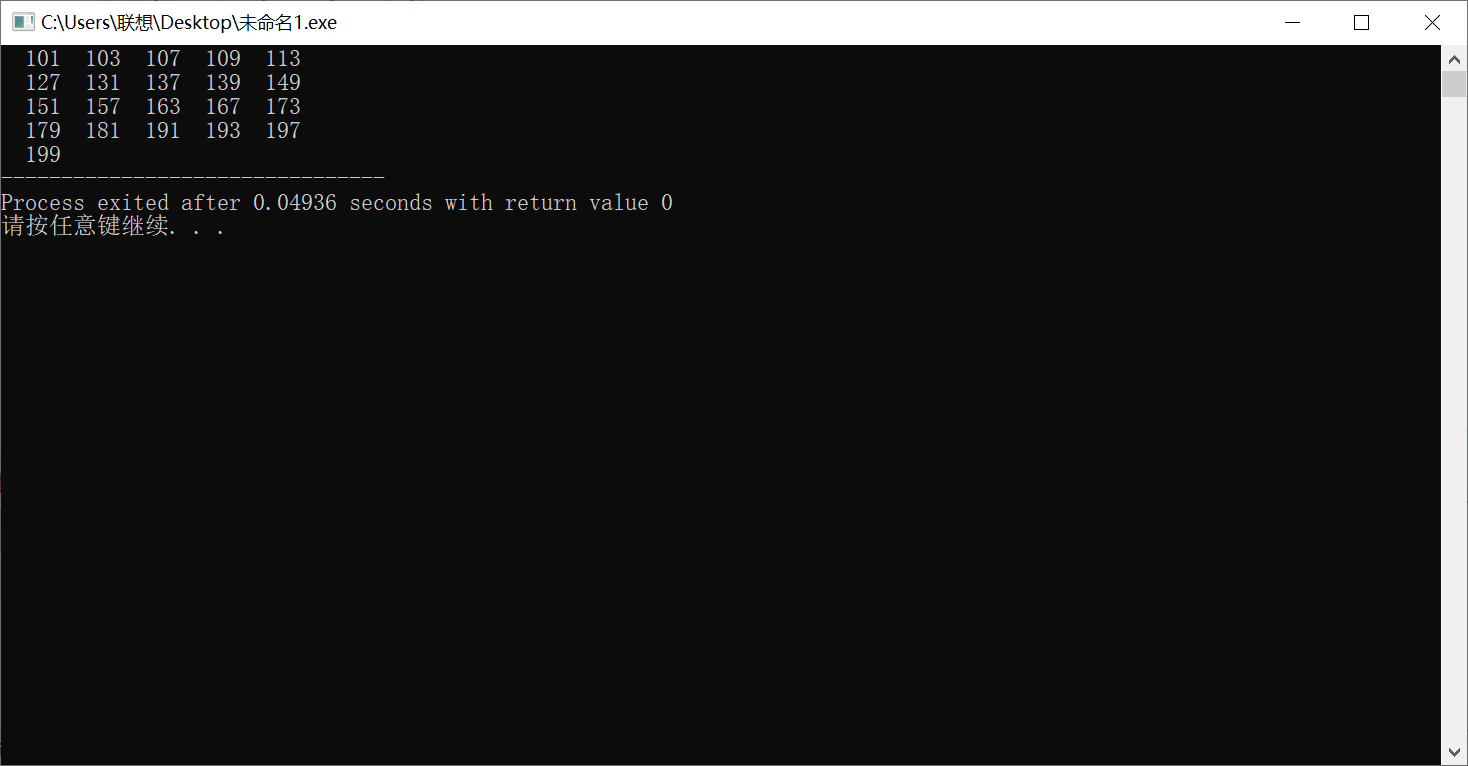



 浙公网安备 33010602011771号
浙公网安备 33010602011771号